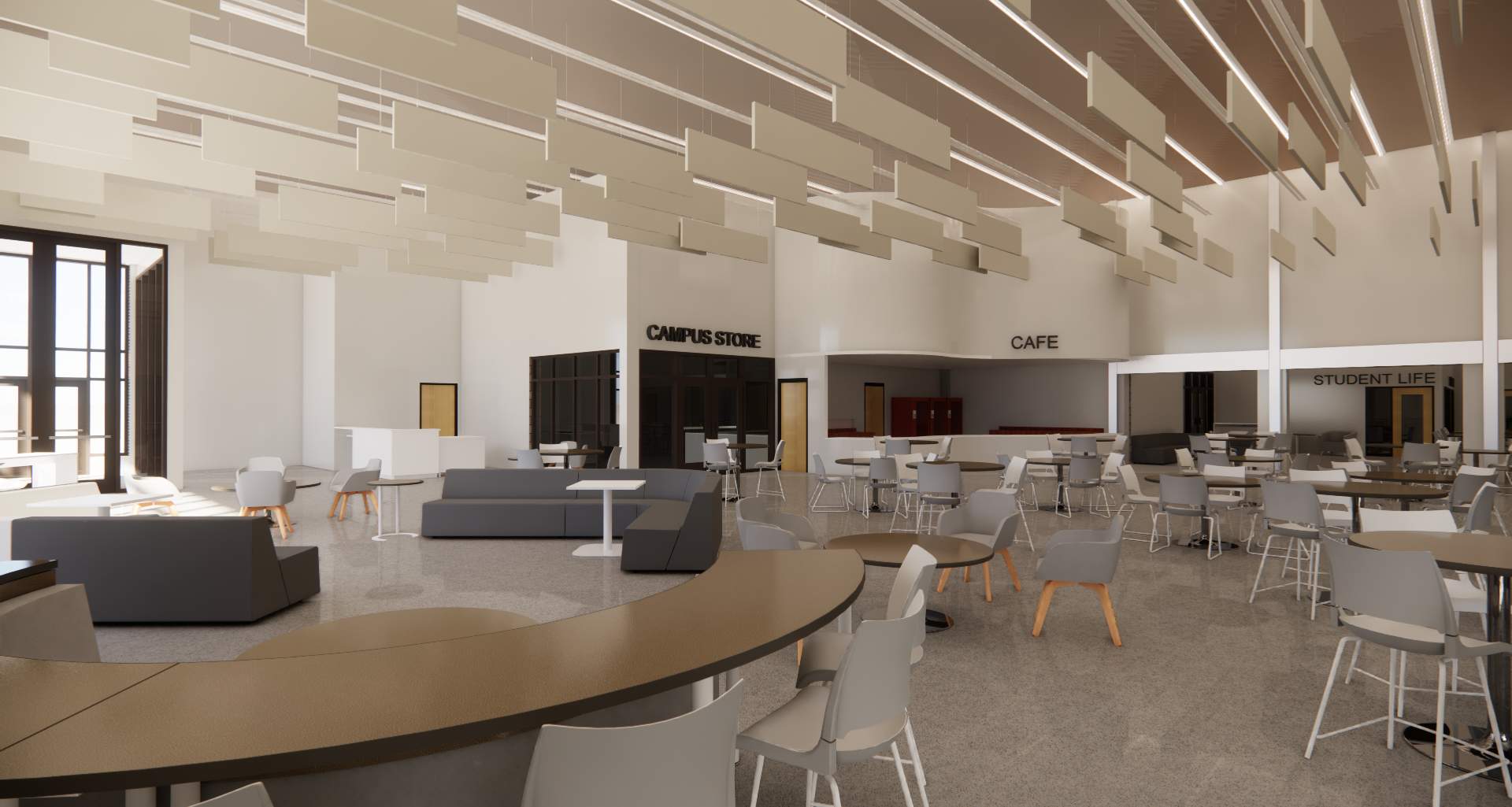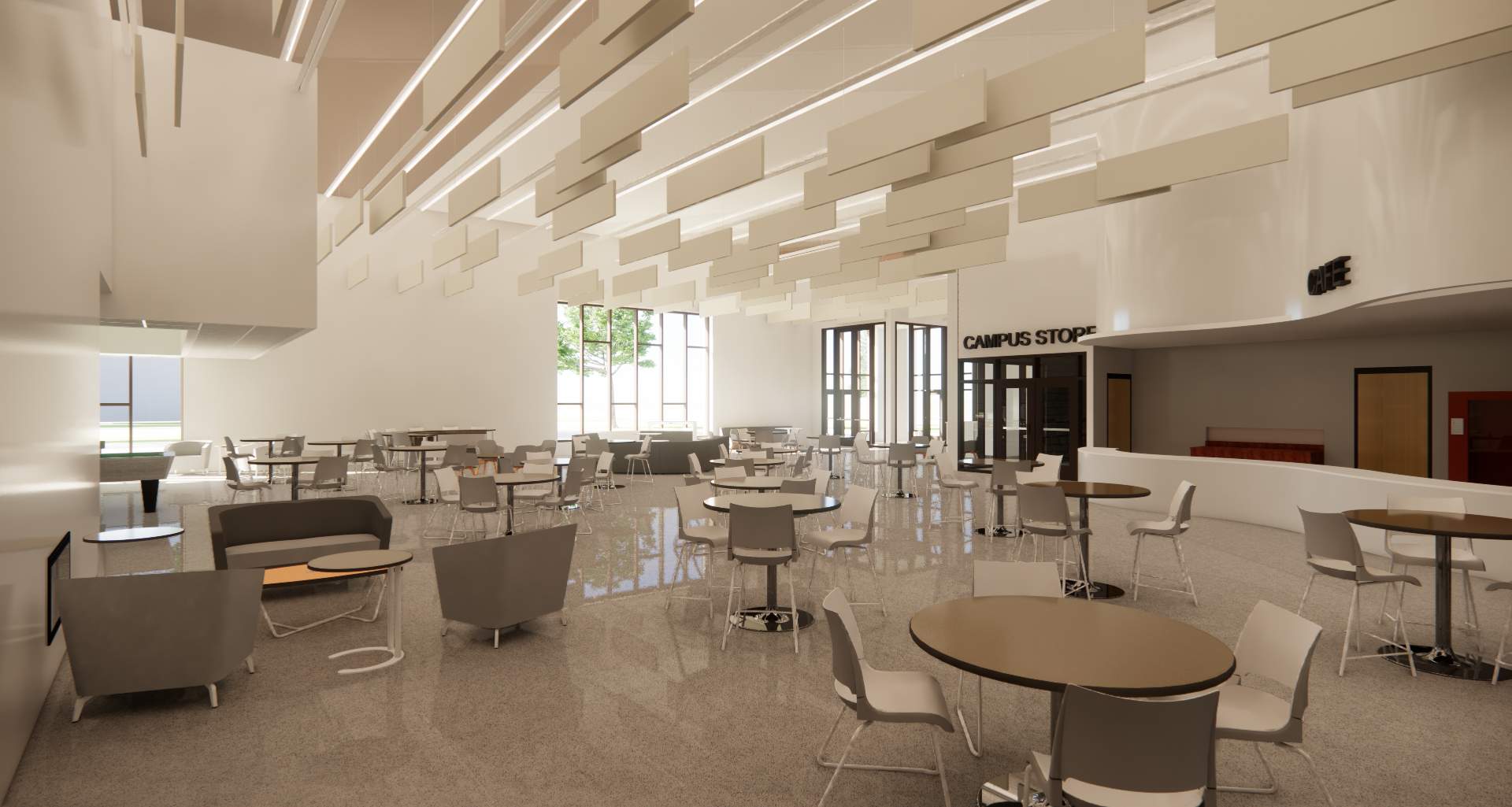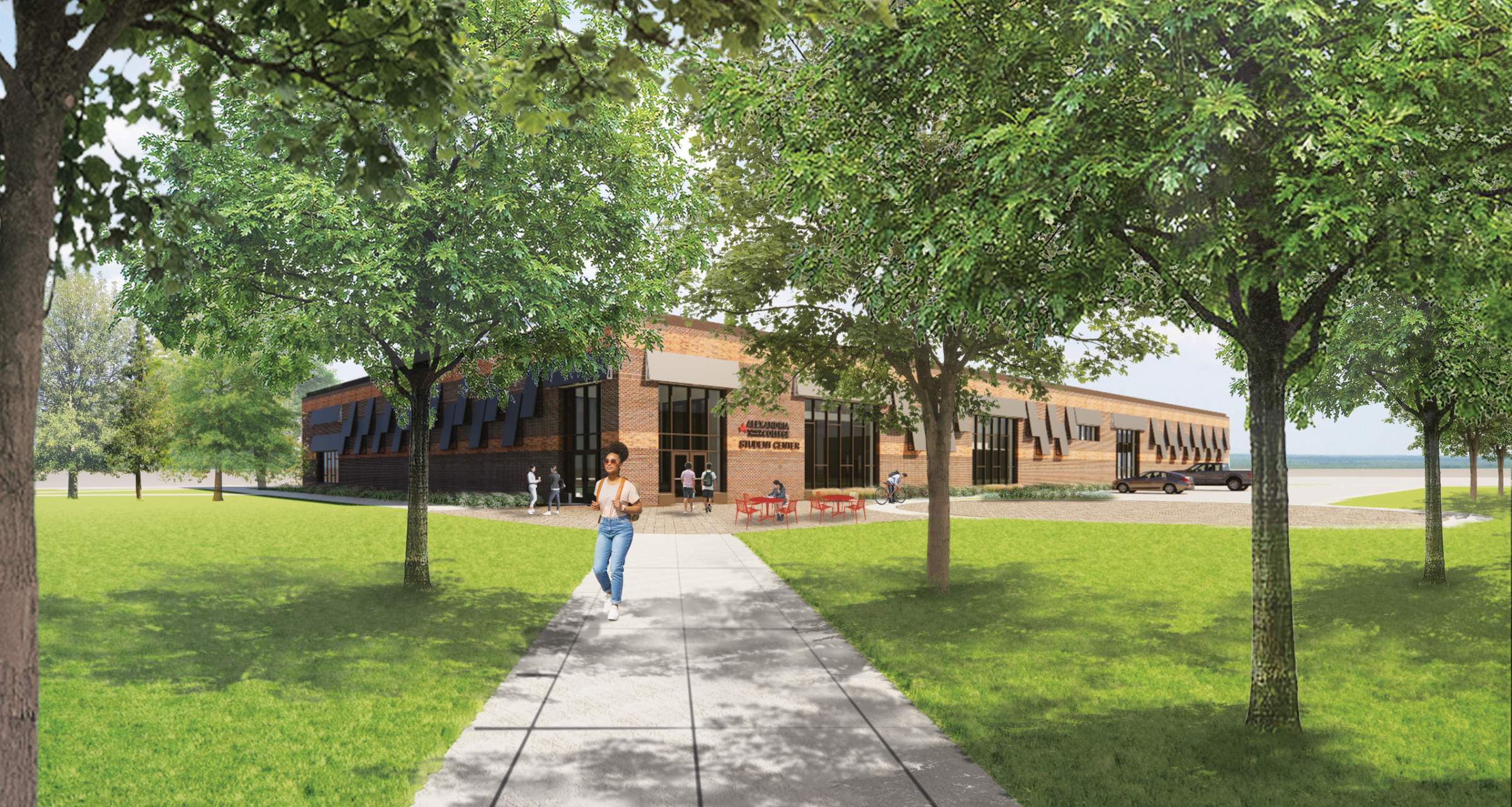Driving Innovation: The Next 50 Years of Transportation Excellence at Alexandria College
This initiative is one of several that the Minnesota State system of colleges and universities is presenting to the Minnesota Legislature during its 2025 session. It aims to expand enrollment, modernize facilities, enhance the student experience, and strengthen Alexandria College’s reputation as a leader in preparing students for transportation careers. The Law Enforcement Training Center, constructed in 2007, is the college’s most recent capital project.
Funding for Transportation Center schematic design was awarded in 2023. Current facilities date back to the1960s and 70s. A new Transportation Center provides an opportunity for programs to upgrade to current technology and better meet growing employee demand in transportation-related fields across Minnesota. Looking toward the future, the new facility will create space for innovation labs to explore emerging technologies like electric vehicles (EVs) and fuel cell electric vehicles (FCEVs). Ultimately, this project will ensure Alexandria College continues to produce industry-ready graduates for key partners including Ziegler CAT, RDO Equipment, Co., and Polaris, plus many local and regional small businesses.
More than 12,000 Alexandria College graduates live and work in Minnesota, but key higher education competitors are in Wahpeton, ND (North Dakota State College of Science) and Watertown, SD (Lake Area Technical College). North Dakota State College of Science, for example, attracted nearly 20% of its fall 2023 students from Minnesota. The Transportation Center will help recapture a portion of these students and their future workforce contributions in our state.
Program Highlights
Diesel Mechanics Program: Established in 1966, this program’s legacy of excellence is supported by faculty comprised entirely of program alumni. Diesel mechanic is designated a five-star career (highest level of demand) by the Minnesota Department of Employment and Economic Development (DEED), with demand for diesel engine specialists in Minnesota is expected to increase 3.7% in the next decade. Students learn critical skills in the maintenance and repair of construction, agricultural, and semi-tractor equipment. Over the last decade, the program has averaged 86 students per year and often has a waitlist. The proposed Transportation Center will address this issue by increasing enrollment capacity and incorporating advanced tools like simulation and virtual reality to enhance learning.
Professional Truck Driver Program: Averaging 32 students per year, this program takes a comprehensive approach to preparing students for Minnesota's Class A CDL exam—going beyond the basics to graduate not just drivers, but professionals. To prepare for this five-star DEED career, with demand expected to increase by 5.8% in the next decade, students first complete rigorous simulator training to build skills in a safe, controlled environment. Then they hit the road, logging more than 2,000 miles in various tractor-trailer combinations. As the only accredited truck driving program in Central Minnesota, and one of only four programs in the Minnesota State system, the Transportation Center will further strengthen its offerings and safety features by co-locating with Diesel Mechanics.
Marine, Motorcycle, & Powersports Technician: An average of 45 students annually build practical skills in repair and maintenance of marine, powersports, motorcycle, and small engine equipment in this four-star DEED career with an anticipated increase in demand of 4% over the next decade. Students in this program will have the opportunity to explore emerging technology and engage in cross-disciplinary collaboration with Diesel Mechanics and Professional Truck Driving students in the innovation labs of the Transportation Center.
Student Support Center (phase 2)
Throughout its evolution as an educational institution, ATCC has broadened its impact while remaining true to its career-focused education origins. Previously known as a technical college and commuter campus with a “Find ‘em, teach ‘em, place ‘em” motto, ATCC became a comprehensive college in 2010 with the addition of liberal arts and transfer programs to its offerings. The creation of a student support center is a crucial step in ATCC’s continued evolution.
The ATCC Foundation opened a 150-bed residence hall in 2012 and a second 149-bed residence hall in fall of 2024. The 299 beds are full and have a waiting list for fall 2025. While ATCC is now a community college in both name and in roots, the college’s reach extends far beyond that. More than half of students come from more than 50 miles away (FY2024), and for each of the past four years, ATCC has had students from all 87 counties in Minnesota.
To support this transformation to a destination college, a second phase of this project involves remodeling vacated diesel lab space for a centralized Campus Student Support Center designed to elevate student success and engagement for all learners. Research shows that engaged students are 2.5 times more likely to excel academically, and Alexandria College is committed to fostering that connection. The proposed Campus Student Support Center will centrally locate several amenities currently distributed across campus and create new spaces for students to connect and thrive.
Financial Management and Sustainability
While any capital project comes with a price tag, Alexandria College is committed to responsible financial management and sustainability. The project(s) will eliminate over $6 million in deferred maintenance costs and reduce net operating expenses through high-efficiency energy systems. By maximizing the utilization of current classroom and lab spaces, and decommissioning antiquated space, the overall footprint of the ATCC campus will decrease because of this project.
By modernizing facilities, increasing enrollment capacity, and fostering a sense of campus unity, these projects will ensure Alexandria College remains a leader in technical education and continues to meet the needs of our business community.
Recent News:
-
2025 Legends Spotify Playlist
May 12, 2025 | 10:57 AM -
Powerful Stories of Service and Sacrifice Shape Our Police Training Students
May 8, 2025 | 3:45 PM -
City of Alexandria and Alexandria College Celebrate Completion of Daycare Building Project
May 6, 2025 | 12:45 PM




